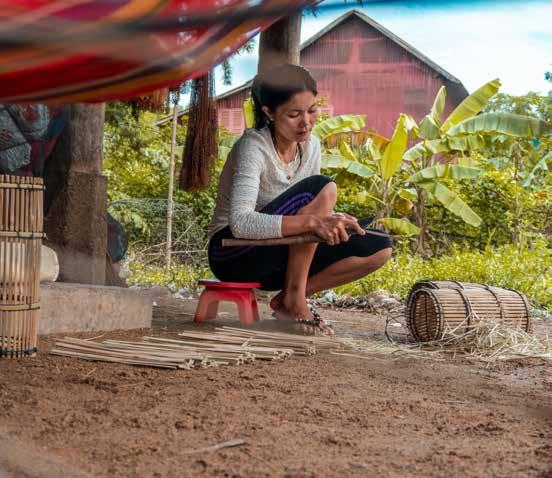
1 minute read
Water Matters for Health
Having access on school grounds to water not only enables Augusta and girls like her to not miss school trying to find water, but it also better addresses the unique sanitary and health needs of women and girls—needs that have long been seen as “women’s problems,” with the burden of finding solutions left on women and girls.
With clean water available and readily accessible on school grounds, Augusta and girls like her can stay in school even during menstruation. “Girls’ access to schooling is at its greatest risk when they begin menstruating,” shares Haley Clark, who lives in Sierra Leone and serves as the Director of Anti-Trafficking and Gender-Based Violence at WHI. “Being able to wash up and keep clean becomes paramount.” during her absence and still end up missing or arriving late to school.
Advertisement
Menstrual equity means that Augusta and other girls are not discriminated against or otherwise locked out of the same opportunities boys receive just because of their periods.
At WHI, we don’t just randomly build wells anywhere; we work with villages to strategically place wells in the best possible place. For most villages, that place is in the schools, where not only does it mean girls don’t have to miss school for long hours finding water, but it also fosters menstruation equity.
At WHI, we often partner with people like you to build wells and provide sustainable access to water. Those wells can not only be the difference in a community having access to water, but they can also be the key that unlocks a girl’s access to education.









